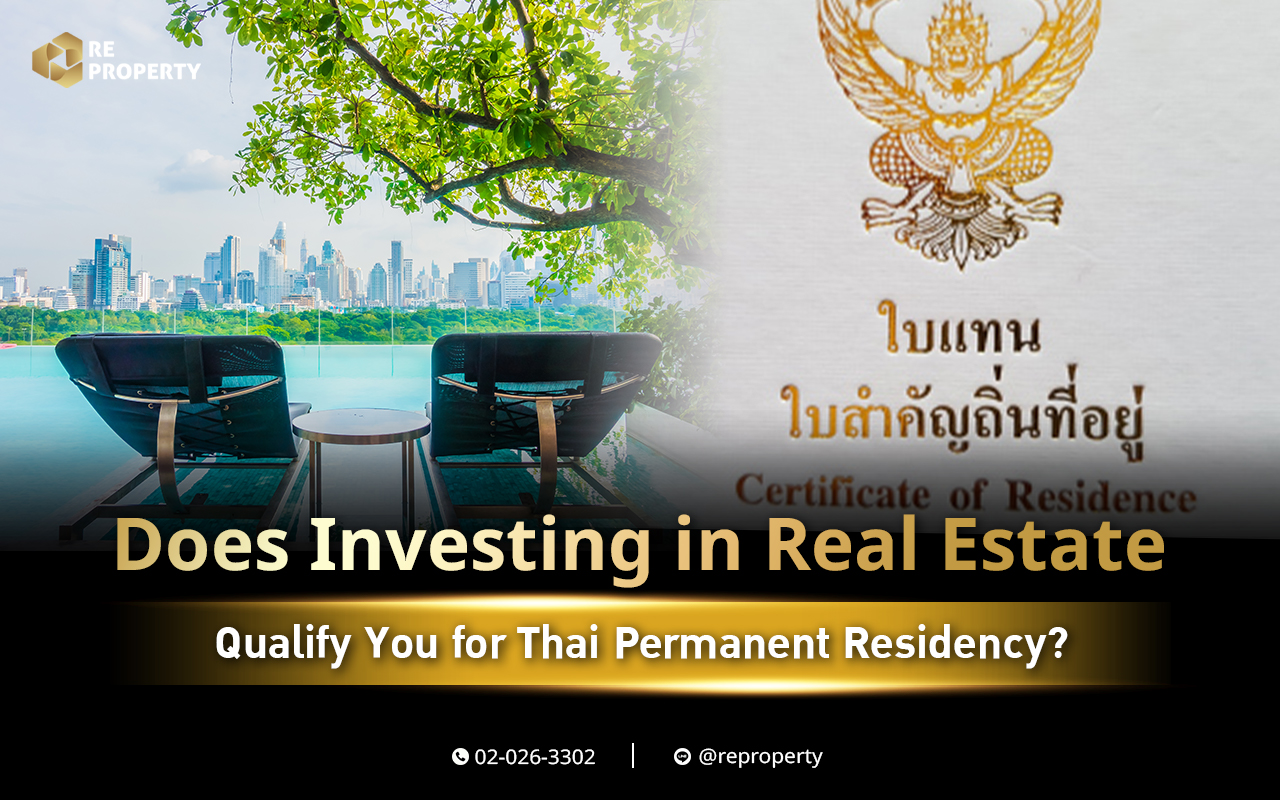Thailand is a top destination for expats and investors, offering a vibrant lifestyle and a strong property market. Many foreigners interested in buying a condo wonder if owning property in Thailand can help them obtain permanent residency. While Thailand does not have a direct residency-by-investment program, property ownership can still play a role in supporting an application for Thai Permanent Residency (PR). Let’s explore how real estate investment fits into the process and what options are available for long-term residency in Thailand.

One of the most common misconceptions is that purchasing property in Thailand grants automatic permanent residency. Unlike some countries that offer residency-by-investment programs, Thailand does not provide PR solely based on property ownership. However, owning real estate can strengthen an application by demonstrating financial stability and a long-term commitment to the country.
Foreign buyers can legally own condos in Thailand under the 49% foreign ownership quota, but land ownership is generally restricted. Many investors use long-term leases or set up Thai companies to invest in property, but these do not automatically lead to PR.
To qualify for Thai PR, applicants must meet strict eligibility criteria set by the Immigration Bureau. These include:
Since there is no direct property-based PR program, most foreigners apply under categories such as business, employment, or family ties.
While real estate investment alone does not qualify someone for PR, it can contribute to a strong application in several ways.
Foreign buyers interested in staying in Thailand long-term should consider investing in locations that offer strong rental returns, good infrastructure, and expat-friendly communities.
While location does not impact PR eligibility, it can influence the quality of life and investment potential for foreign buyers.
For those who do not qualify for Thai PR but want long-term residency, there are several alternative visa options:
These options provide long-term stay benefits but do not lead directly to permanent residency.
If you meet the eligibility requirements and want to apply for Thai PR, the process involves several steps:
The Thai PR process is competitive, with only a limited number of approvals each year.
No, Thai citizenship is only available through naturalization, which requires 10 years of residency in Thailand under PR status
No, but investing 10 million THB+ can help obtain a long-term investment visa, which may support future PR applications.
No, renting does not contribute to PR eligibility, but a long-term lease (30+ years) can help with residency applications.
While buying property in Thailand does not automatically grant permanent residency, it can strengthen an application by demonstrating financial stability and long-term commitment. The best strategy is to combine property investment with a business, work permit, or other qualifying factors to increase the chances of PR approval.
For those seeking long-term residency without PR, alternatives like the Thailand Elite Visa or investment visa may be more accessible options. Before making a decision, it’s always best to consult a legal or immigration expert to explore the most suitable path based on your personal and financial situation.
Stay informed with the latest expert insights on Bangkok’s thriving real estate market, investment opportunities, and property trends.
To register your property information, please fill out the form below